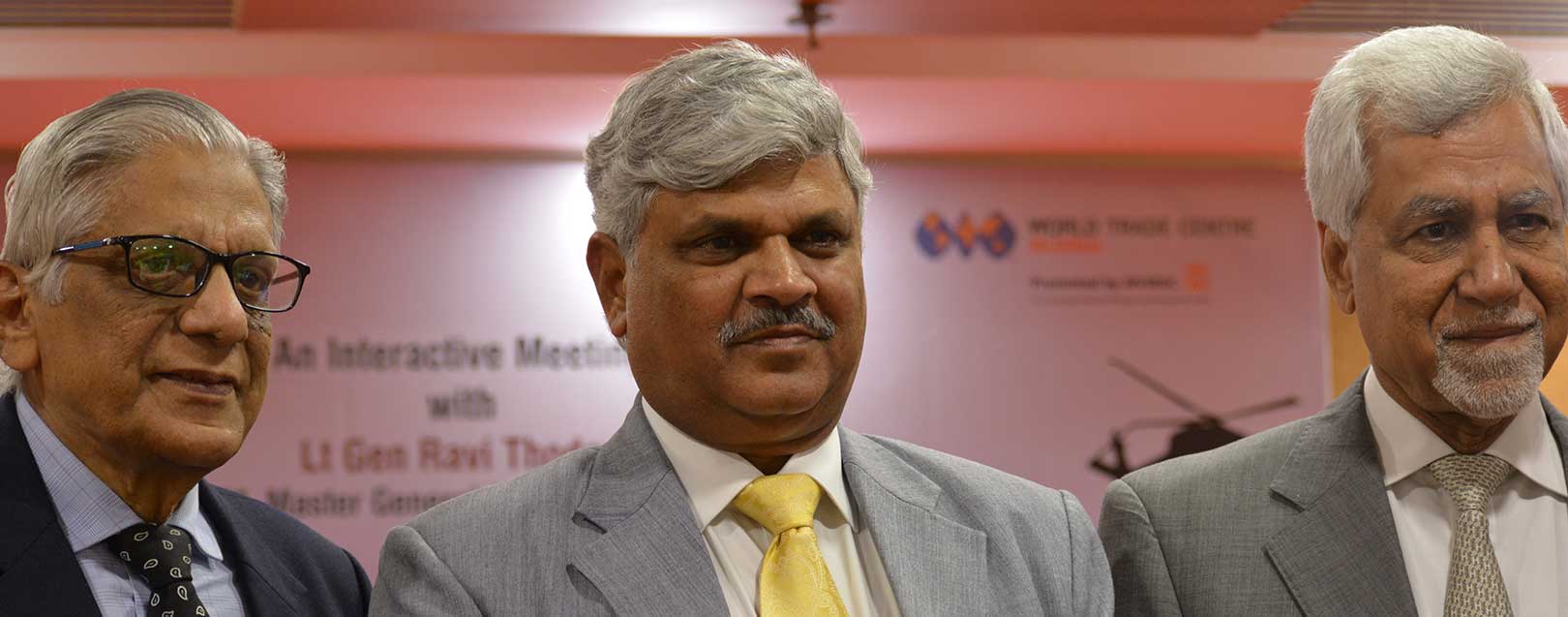
No-more ‘chakravyuh’ for MSMEs in defence-deals, Ravi Thodge
Sairaj Iyer
Government contracts could be a great avenue for start-ups and MSMEs, but many perceive it to be a complicated route, similar to a confusing chakravyuh. Lt. Gen Ravi Thodge, ASVM, SM, VSM and Master General Ordinance with the Indian army (retd.) highlighted that this chakravyuh is fast disappearing. Speaking to a gathering of MSMEs at the World Trade Center, he shared that a defence-MSME partnership would not only help start-ups, but also offer the army indigenized products and local support.
Speaking about how the initiative has been lacking over the past few years he said, “The basic desire to work with the army is lacking. In the past 2 years, I have been travelling and interacting with various MSMEs, and have found that they provide some indigenous products for the army. We (Indians) have the energy as well as intelligence, but people need to let-go of this inhibition.”
The general stated that during operation Vijay (Kargil), the procurement cost escalated three times the regular cost. Costly imports due to unavailability of local products and services were a major reason for the increase in costs. Import costs covered not only the manufacturer’s cost and margins, it also covered transportation & logistics costs, overseas labour, and currency related issues. Indigenized products or components, in this regard, were available at a fraction of the imported materials and moreover it was also easy to get servicing and replacement of parts faster.
Indigenization will not only lead to substitution in imports also improve productivity levels, which would lead to a growth in GDP and improve FDI. As such a 2% increase in GDP equates with a 5% increase in FDI. The defence budgets, according to Captain Somesh Batra, founding partner at Seahorse Shipping Agencies, are in the range of $34 bn, and a whopping 60% of these are routed through imports. Referring to the Make-in-India initiative he said, in this regard it was more than a mere slogan. “India has 15,000 kms of land border and 7500 km of maritime border, which needs to be secure, and the armed forces are doing an excellent job with it. Import substitution by involving MSMEs would only facilitate a better GDP,” he said.
The government’s boost to entrepreneurship through Make-in-India or Start-up-India programs could fuel the ambition of the MSMEs to actively pursue defence projects. The statistics provided by the development of local electronic and defence clusters, adopted by Karnataka, Maharashtra and Andhra Pradesh shows ample handholding and transparency in the relationship. “Digitized RFPs and development of regional clusters ensure active handholding between the department and MSMEs. There is a boost from the government to indigenize manufacturing in defence from 20-30% at present to 70% in next 5 years under its ambitious Make in India programme,” he said.
General Ravi Thodge’s forecast for 2017 could spell a bumper year for MSMEs, keen to work in this sector. Maharashtra Chief Minister, Devendra Phadnavis is already looking at spending Rs.1000 crore to get start-ups in the defence sector. He is in talks with the General in developing the defence-manufacturing-clusters at Kolhapur, Aurangabad, Nagpur to begin with, although there do exist avenues in Nashik (components), and Pune (mother-depot for infantry, tanks and vehicles). In response to a query the General shared, “The Defence Ministry is keen to promote local manufacturing from 30% to nearly 70% in coming 5 years. A detailed announcement will be released shortly, but the ministry has already allocated Rs. 2500 crore per year for ammunition alone, to be procured from the domestic manufacturers.”





 to success.
to success.